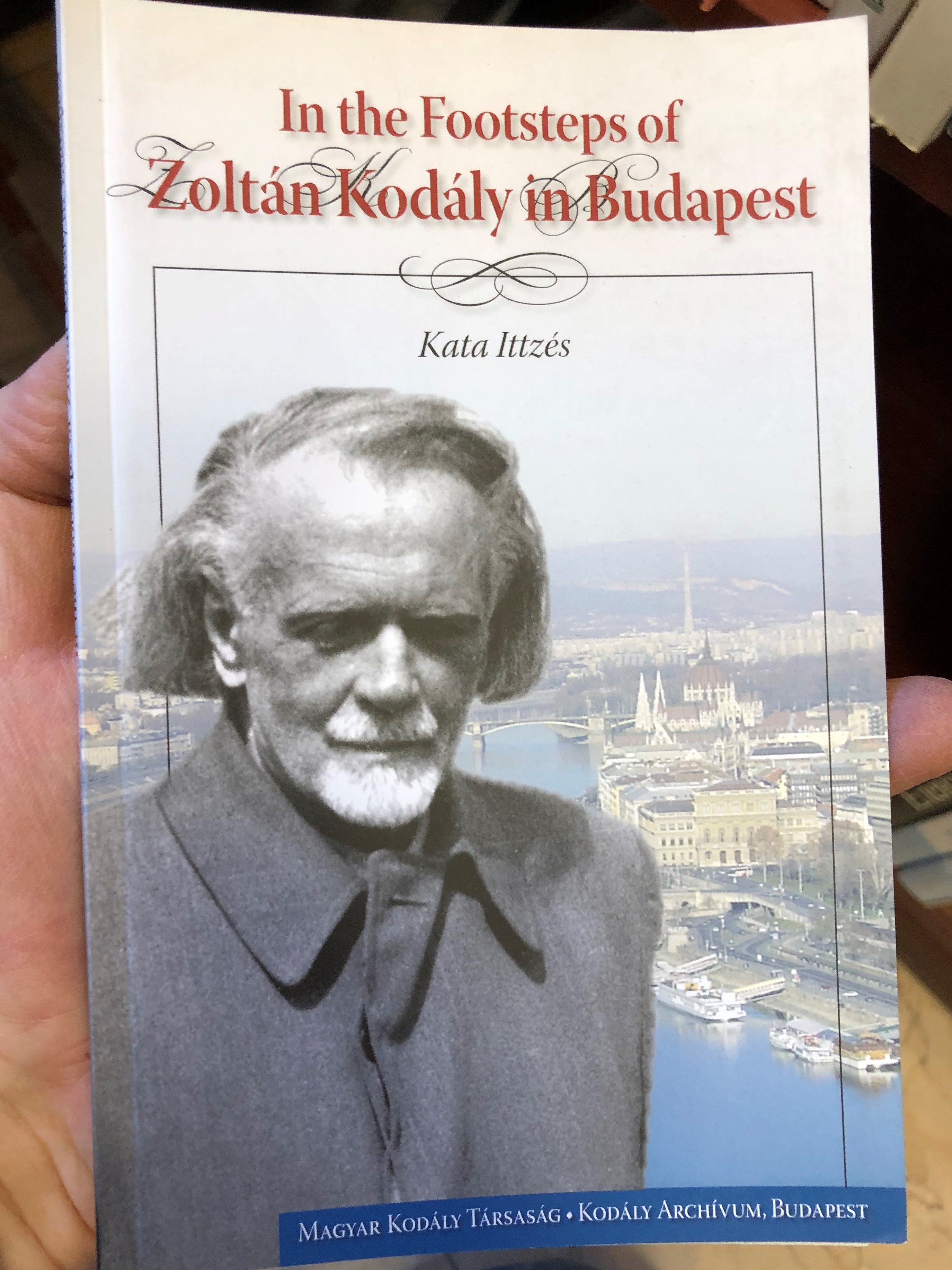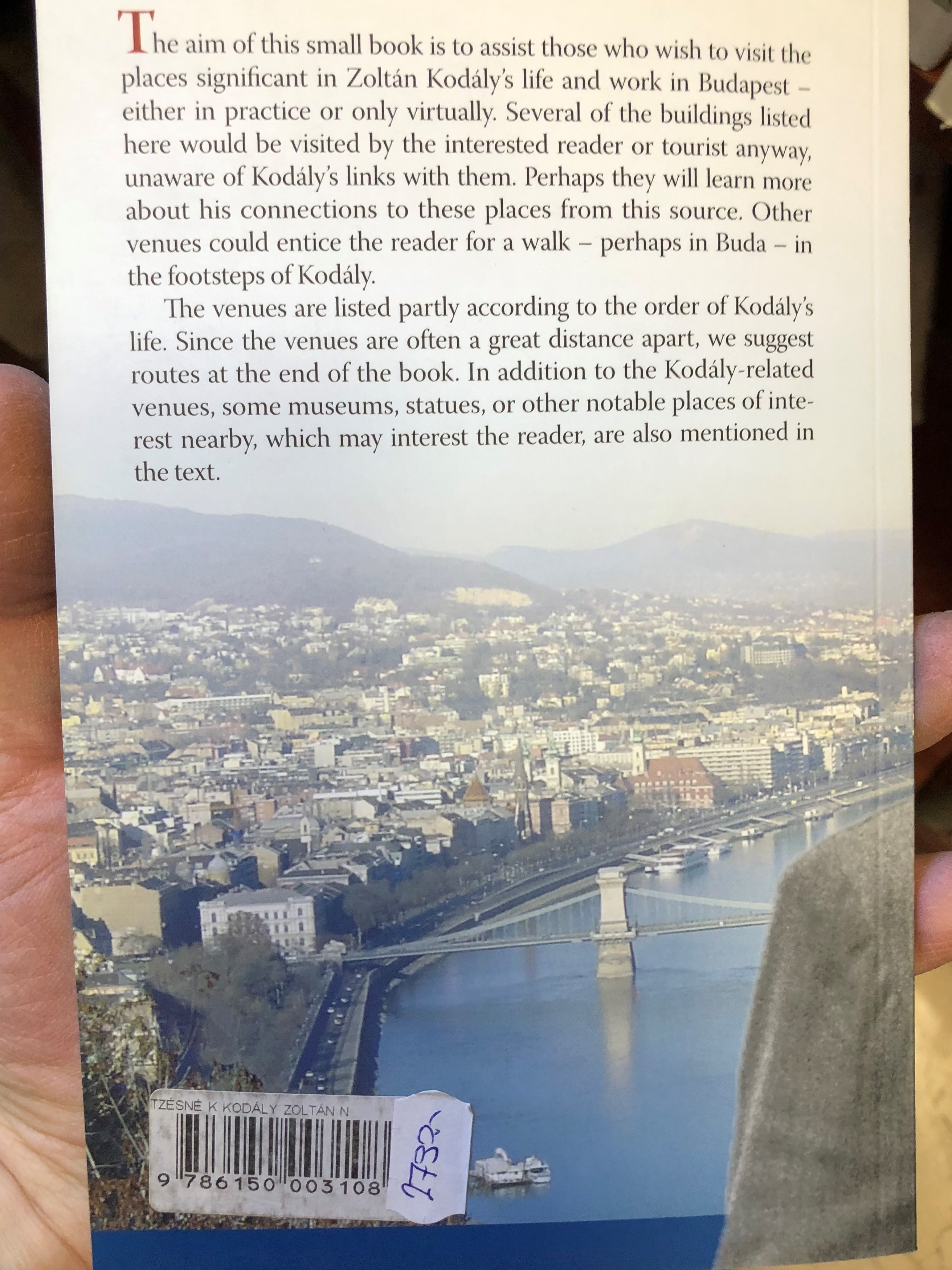Description
In the Footsteps of Zoltán Kodály in Budapest by Kata Ittzés / Magyar Kodály Társaság - Kodály Archívum Budapest / Paperback
Paperback 2017
ISBN: 9786150003108 / 978-6150003108
ISBN-10: 6150003108
PAGES: 100
PUBLISHER: Magyar Kodály Társaság
LANGUAGE: English / Angol
Description:
The aim of this small book is to assist those who wish to visit the places significant in Zoltán Kodály's life and work in Budapest – either in practice or only virtually. Several of the buildings listed here would be visited by the interested reader ortourist anyway unaware of Kodály's links with them. Perhaps they will learn more about his connections to these places from this source. Other venues could entice the reader for a walk – perhaps in Buda – in the footsteps of Kodály.
Zoltán Kodály (/ˈkoʊdaɪ/; Hungarian: Kodály Zoltán, pronounced [ˈkodaːj ˈzoltaːn]; 16 December 1882 – 6 March 1967) was a Hungarian composer, ethnomusicologist, pedagogue, linguist, and philosopher. He is well known internationally as the creator of the Kodály method of music education.
The city of Pécs commissioned a full-length bronze statue, located in Szent István square, in his honour in 1976. According to the wishes of the sculptor, the work stands with its back to the Cathedral and facing a former playground, so that it was facing children, whose musical education was the most important thing in Kodály's life. He is depicted as a fragile old man, who walks almost imperceptibly among the horse-chestnut trees.
At one point during the Hungarian Revolution of 1956, the Workers Councils decide they should form the government with Kodály as president "because of his great national and international reputation.
Kodály Zoltán Vilmos (Kecskemét, 1882. december 16. – Budapest, 1967. március 6.) háromszoros Kossuth-díjas magyar zeneszerző, zenetudós, zeneoktató, népzenekutató, az MTA tagja, majd 1946-tól 1949-ig elnöke.
Kodály Zoltán zenei nevelési koncepciója ma a magyar zenei köznevelés alapját jelenti, jelentős szerepe van a szakoktatásban is. Ezek az alapelvek fokozatosan alakultak ki, fogalmazódtak meg és mentek át a gyakorlatba, azután, hogy a zeneszerző figyelme 1925 táján a zenepedagógia felé fordult.
Elgondolása szerint a jó zenész kellékei négy pontban foglalhatók össze: 1. kiművelt hallás, 2. kiművelt értelem, 3. kiművelt szív, 4. kiművelt kéz. Mind a négynek párhuzamosan kell fejlődnie, állandó egyensúlyban. Mihelyt egyik elmarad vagy előreszalad, baj van. … Az első két pontra a szolfézs és a vele kapcsolt, összefonódott összhangzattan és formatan tanít. Szükséges kiegészítés: mennél sokoldalúbb gyakorlati zenei tevékenység: kamarazene, karéneklés nélkül senkiből sem lesz jó zenész






















